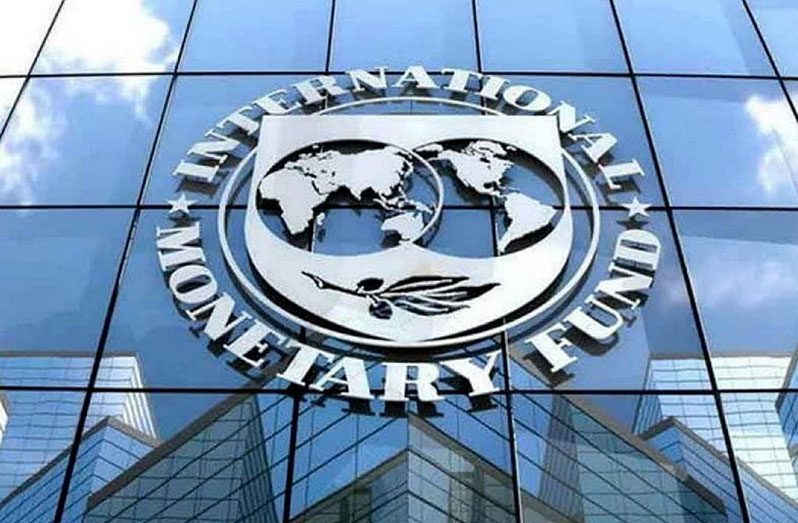-IMF says; commends government’s efforts to enhance country’s energy matrix & drive sustainable growth
THE International Monetary Fund (IMF) has lauded Guyana for remaining, what it termed as, a global pioneer in climate policies and commended the government for its efforts to enhance the country’s energy matrix.
“Guyana remains a global pioneer in climate policies monetising forest conservation, and the authorities are enhancing the country’s energy matrix, strengthening macroeconomic resilience,” the IMF’s 2025 Article IV Mission noted in its concluding statement released on Friday.
Since assuming office in 2020, the People’s Progressive Party/Civic (PPP/C) has remained firm in its manifesto promise of utilising Guyana’s sustainable resources to bring forth prosperity for all.
The Low Carbon Development Strategy (LCDS) was one of the initiatives aimed at achieving this goal. According to the IMF, building resilience, promoting sustainable forestry and enhancing biodiversity conservation in the face of climate change, are being addressed as the government is working to prioritise the actions outlined in the LCDS 2030.
The government allocated $4.7 billion to Amerindian villages in 2024 under the LCDS. The funding benefitted approximately 254 communities across the country, marking a significant investment in the development and empowerment of Amerindian villages.
Guyana has outlined a second-generation LCDS as a successor to its first LCDS, which aims to reduce the country’s reliance on heavy fuel oil and transition to cleaner, more affordable energy sources, as well as mobilise resources from domestic assets.
Under the first LCDS, the global climate services provided by Guyana’s standing forests were mobilised to generate revenue for the country, in this instance, under a US$250 million bilateral partnership with the Kingdom of Norway.
On December 1, 2022, the Architecture for REDD+ Transactions announced the issuance of US$33.47 million TREES credit to Guyana for the five-year period from 2016 to 2020. The Architecture for REDD+ Transactions (ART) is a global initiative that seeks to incentivise the reducing of emissions from deforestation and forest degradation (REDD), as well as restore forests and protect intact forests. Subsequently, the government entered into an agreement whereby Hess Corporation purchased approximately a third of Guyana’s credits. The agreement sets out that Hess will buy 2.5 million credits per year for 2016 to 2030 to a total of 37.5 million credits for a minimum payment of US$750 million to be paid to Guyana between 2022 and 2032.
On February 28 last year, Guyana announced the issuance of the world’s first carbon credits eligible for use by airlines in Phase 1 of CORSIA – the United Nations’ International Civil Aviation Organisation (ICAO)’s global emissions reduction programme. The credits issued were for Guyana’s 2021 performance in sustaining one of the world’s highest levels of tropical forest coverage, and one of the world’s lowest deforestation rates. A total of 7.14 million credits were issued by the Architecture for REDD+ Transactions (ART) for conformance with ART’s “TREES” standard.
CLEANER, RENEWABLE ENERGY
Energy is key for the economic growth and for an improved quality of life for all Guyanese, the PPP/C had outlined in its manifesto.
Since assuming office, the administration has pursued a number of initiatives to ensure Guyanese can access affordable, stable and reliable energy.
According to the IMF, the Gas-to-Energy (GtE) project is expected to secure reliable electricity provision countrywide as a transition toward a cleaner and more renewable energy mix over the longer term.
Earlier this year, Guyana and the United States Export-Import (EXIM) Bank signed a US$527 million loan to further support the development of the GtE project. This highly-anticipated project will see a 200-kilometre pipeline bringing gas from the Liza Destiny and the Liza Unity Floating Production fields onshore.
Upon arrival at this West Bank Demerara facility, the pipeline will continue for approximately 25 kilometres to the Natural Gas Liquid (NGL) plant to be constructed in Wales.
The GtE project, once completed, will have significant impact on the country’s economy, attracting sustainable investments across various sectors, and creating numerous job opportunities.



.jpg)










